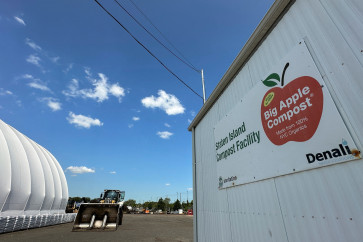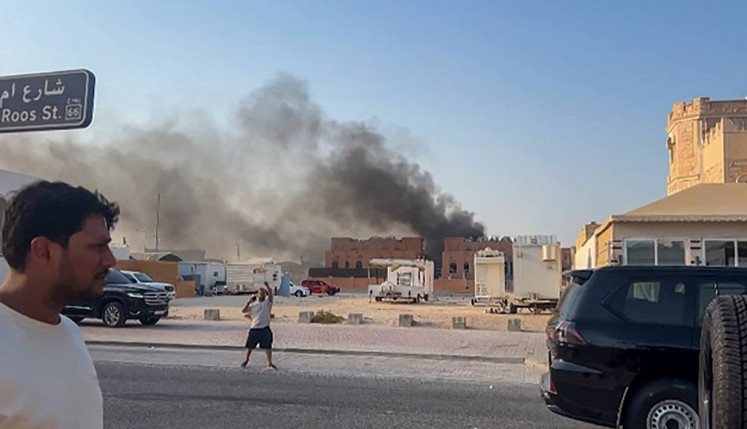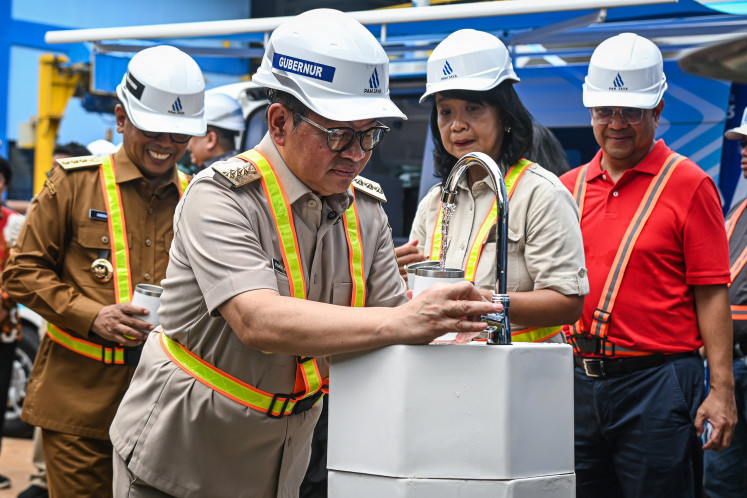Popular Reads
Top Results
Can't find what you're looking for?
View all search resultsPopular Reads
Top Results
Can't find what you're looking for?
View all search resultsNatural resources: Whose interest, responsibility?
Jakarta is hosting a two-day conference called Tropical Landscapes Summit 2015: A Global Investment Opportunities, starting Monday, which aims to increase environmental awareness in order to provide a platform for governments to explain their plans and policies in renewable energy and to collect input from stakeholders on issues related to the green economy
Change text size
Gift Premium Articles
to Anyone
J
akarta is hosting a two-day conference called Tropical Landscapes Summit 2015: A Global Investment Opportunities, starting Monday, which aims to increase environmental awareness in order to provide a platform for governments to explain their plans and policies in renewable energy and to collect input from stakeholders on issues related to the green economy.
As the conference is organized jointly by the UN Office for Reducing Emissions from Deforestation and Forest Degradation (REDD+) in Indonesia and the Investment Coordinating Board (BKPM), we also see many initiatives related to having a greener economy coming from external forces.
Indonesia set an ambitious target of reducing emissions by 26 percent in 2020 against a business-as-usual trajectory at the G20 Summit in 2009. Private businesses have started to change their attitude into an environmentally friendly one as it is required by their international buyers.
Nevertheless, does focus on this issue sacrifice other important issues like economic growth? And why do foreign parties push this issue for Indonesia? Who actually benefits from an economy with high environmental standards?
Indonesia is rich in natural resources, accounting for around one-quarter of the country's gross domestic product (GDP). However, exploitation of natural resources may harm both Indonesia and the rest of the world.
For example, deforestation emits a large quantity of CO2 not only to Indonesia but also to the whole earth. This explains the interest of the rest of the world in our environment-related activities.
Hence, compensation from them for our loss of short-term gains due to an inability to fully utilize natural resources is what we expect.
Early this month President Joko 'Jokowi' Widodo renewed his commitment to cooperate with Norway on REDD+ in return for Norway's assistance of US$1 billion in 2010.
It is clear that international interest in how we treat and manage our land has to be reflected by their assistance in terms of funding and technology sharing.
As from the domestic side, the government has to possess a long-term view on the ecosystem and the land we pass on to the next generations. As a developing nation, emitting CO2 to a certain level, as a result of our economic activity, is unavoidable.
Developed nations emitted the gas in larger amounts in their industrialization era long ago. However, unwise exploitation of natural resources engenders environmental degradation, which directly affects local communities where the exploitation occurs.
For instance, irresponsible coal mining causes water pollution which then deteriorates the community's health and, hence, welfare.
The government is rightly concerned about the country's dependence on fossil fuels as they contribute heavily to the thickening of greenhouse gas. The fuels' volatile international prices also trigger domestic inflationary pressure.
We have the potential to develop our own renewable energy as the land stores 40 percent of the world's reserves of geothermal.
In brief, environmental policies will eventually support economic development although they may seem to weaken economic growth in the short run. So it is not a tradeoff between environmental policy and welfare-enhancing policy.
We should make full use of the external forces and domestic leadership for a smooth transition of our economy to be an environmentally friendly and sustainable one. Domestic political willingness is needed for this transition.
The relatively new Cabinet should seize momentum for strong leadership in managing natural resources ' through the reduction of fossil fuel consumption, development of renewable resources and enforcement of the law against environmental offenses.
The adoption of a fixed-subsidy system for fuels starting early this year is significant progress. Market-based pricing will lead to a more efficient use of fuel.
Furthermore, while some regulations on developing renewable resources such as geothermal are in force, a clear and comprehensive regulatory framework is needed to attract foreign investment in this field and to enable partnerships with local public or private agents.
Moreover, law enforcement is a common problem across the sector in developing countries, such as eradicating illegal mining and illegal logging.
As Lady Bird Johnson, a respected environmentalist, says: 'The environment is where we all meet; where all have a mutual interest; it is the one thing all of us share.'
___________________
The writer, a graduate of the Australian National University, was an economic researcher at the Centre for Strategic and International Studies (CSIS) in Jakarta and now resides in Amsterdam.










